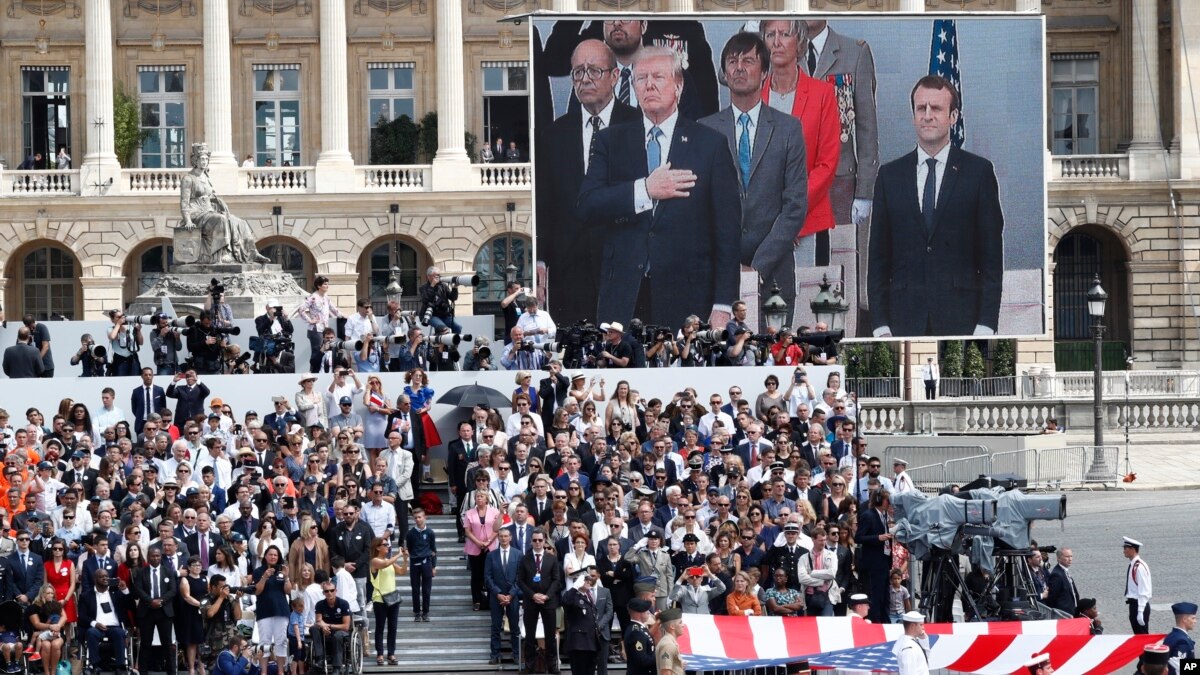
The Pentagon says defense officials did not brief U.S. President Donald Trump on costs associated with a military parade that he has since canceled.
"No member of the Department of Defense briefed the president on any pre-decisional costs associated with the parade," Pentagon spokesman Col. Robert Manning told reporters on Monday. "As far as the president's thought process, I just have to refer you to the White House."
President Trump had called for a military parade after he and first lady Melania Trump watched Bastille Day events in Paris in July 2017 as guests of French President Emmanuel Macron and his wife, Brigitte.
The U.S. military parade initially had been set for November 10, but the Pentagon issued a statement last week that it had agreed to "explore opportunities in 2019."
Trump on Friday blamed "local politicians" in Washington who "wanted a number so ridiculously high" that he decided to cancel it.
"I will instead attend the big parade already scheduled at Andrews Air Force Base on a different date, & go to the Paris parade, celebrating the end of the War, on November 11th," the president wrote on Twitter.
The announcement followed media reports that said the estimated cost for the parade had gone from about $12 million to $92 million.
Manning added Monday that cost analysis figures for the parade had not been given to Secretary of Defense Jim Mattis or Marine Gen. Joseph Dunford, chairman of the Joint Chiefs of Staff, a statement that collaborated Mattis's comments to reporters traveling with him last week.
Speaking to reporters aboard a U.S. military aircraft on Thursday, Mattis said he had given initial guidance for the parade, but had not seen any cost estimates.
"I haven't received an estimate of $10 million or $92 million," he said.
"Whoever told you that is probably smoking something that's legal in my state but not most states," he joked, in an apparent reference to the use of marijuana, which is illegal in most of the United States but not in the secretary's home state of Washington.
According to a Pentagon memo released in March, the military parade had been expected to go from the White House to the U.S. Capitol and focus on "contributions of U.S. military veterans throughout history."
Military parades in the United States are generally rare. In 1991, U.S. troops paraded through Washington to celebrate the ousting of Saddam Hussein's Iraqi forces from Kuwait in the Persian Gulf War.
/cloudfront-us-east-1.images.arcpublishing.com/bostonglobe/VNG7YMZTRWJ5WBFTJ5NVETPCQI.jpg)
No comments:
Post a Comment